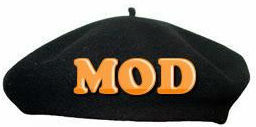Then you aren't reading your bible.
I'm reading my Bible quite clearly. What part of those verses were not written in English do you not get? Abomination doesn't exist in Hebrew, and absolutely no where in the Old Testament are lesbians condemned. What, did God just forget to condemn 50% of homosexuals in the Old Testament? Not to mention, if you condemn others with the law, you will be condemned by God with it, and based on the Torah, all Christians should be executed.
Nothing there suggests even the remotest amount of ambiguity
Except it's only written to the Levite Priesthood of the Ancient Israelites, doesn't apply to women, and is in the direct context of pagan worship. And the word incorrectly translated as "abomination" in the KJV, refers to a ritual prohibition in Hebrew, not to a moral evil.
Deuteronomy 17:1 Thou shalt not sacrifice unto the LORD thy God
any bullock, or sheep, wherein is blemish,
or any evil favouredness: for that
is an abomination unto the LORD thy God.
The word in that verse for "abomination" is the same word used in the verse you quoted to condemn gays. Are you really going to try to tell me that sacrificing an animal that is blemished is a grave moral evil in the 21st Century?
So does this verse:
Isaiah 1:13 Bring no more vain oblations;
incense is an abomination unto me; the new moons and sabbaths, the calling of assemblies, I cannot away with;
it is iniquity, even the solemn meeting.
And an important one:
Jer 32:25 And they built the high places of Baal, which
are in the valley of the son of Hinnom,
to cause their sons and their daughters to pass through the fire unto Molech; which I commanded them not, neither came it into my mind, that they should do this abomination, to cause Judah to sin.
That's quite relevant, seeing as the very preceding verse in the Leviticus that you quoted to condemn gays tells the Israelites not to sacrifice their children to the god Molech.
Leviticus 18:21
And thou shalt not let any of thy seed pass through the fire to Molech, neither shalt thou profane the name of thy God: I am the LORD.
Verse 21 in the original Hebrew is an abrupt subject change from the discussion of incest in the previous verses. There were no page or verse numbers in the original scripture. The "anti-gay" verse (verse 22) goes with verse 21, not the discussion of incest in verses 1-19.


